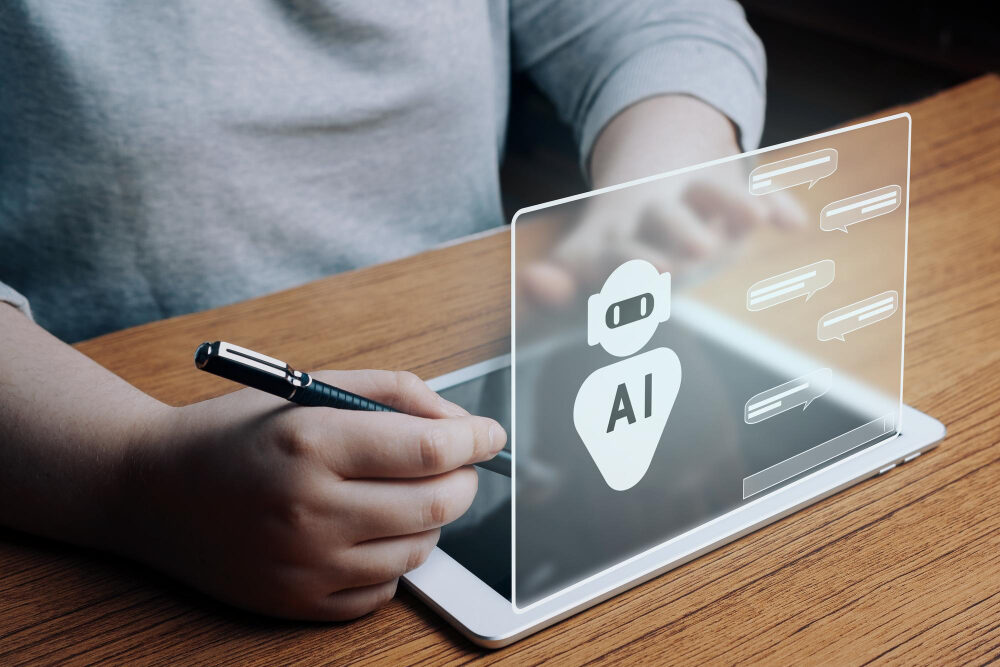How the AI Interviewer Is Changing Hiring in 2025: The job interview as we know it is being transformed. Imagine an AI interviewer that not only asks questions in a human-like voice but also detects lies, analyses tone, and evaluates thousands of candidates simultaneously. This isn’t science fiction; it’s happening now.
AI interviewer agents are revolutionising how companies assess talent, and they’re changing how job seekers prepare. In this blog, we explore how this new technology works, what it means for hiring, and how you can stand out when your next interviewer is an algorithm.
How the AI Interviewer Is Changing Hiring in 2025
What Is an AI Interviewer?
An AI interviewer is a virtual interview agent powered by artificial intelligence, natural language processing (NLP), facial recognition, and behavioural analytics. Unlike traditional software that just collects answers, this AI can:
-
Ask follow-up questions
-
Understand and analyze speech patterns
-
Detect signs of dishonesty or anxiety
-
Score answers based on company-defined criteria
-
Operate at scale interviewing hundreds or even thousands daily
These capabilities make the AI interviewer a powerful tool for modern recruitment teams.
How the AI Interviewer Works
The AI interviewer mimics a human interviewer using a realistic voice, camera input, and text-based prompts. Here’s how a typical session works:
-
Invitation Sent: The candidate receives a link to the AI interview platform.
-
Interview Begins: The AI greets the candidate and starts asking questions.
-
Real-Time Analysis: The AI listens to responses, monitors facial expressions, and measures voice pitch and pacing.
-
Cheating Detection: If someone tries to read from a script or another person is nearby, the system flags it.
-
Instant Evaluation: The candidate’s performance is scored in real-time using machine learning models.
-
Report Generated: Recruiters receive a full analysis, complete with risk flags and behaviour markers.
The entire process may take less than 30 minutes per applicant, and it’s available 24/7.
How AI Interviewer Detects Cheating
One of the standout features of the AI interviewer is its ability to detect dishonesty and potential cheating. It uses multiple data points:
-
Eye movement tracking: Looks for reading behavior or screen shifting
-
Voice stress analysis: Detects inconsistency in tone and speech pace
-
Background sound detection: Flags if another person is feeding answers
-
Face detection: Recognizes if multiple faces appear in the camera frame
These mechanisms make the AI interviewer far more vigilant than a human recruiter, especially during remote hiring.
Benefits for Recruiters
For HR teams and hiring managers, AI interviewers offer a game-changing solution:
-
Scalable hiring: Interview 10,000 candidates in a day without fatigue
-
Unbiased evaluation: Eliminates human biases in screening
-
24/7 availability: Candidates can interview anytime from anywhere
-
Data-driven insights: Behavioral reports enhance decision-making
-
Faster shortlisting: Reduces time-to-hire by up to 70%
This innovation is especially useful for companies hiring across time zones, countries, or at volume.
Impact on Job Seekers
Job seekers must adapt quickly. Being interviewed by an AI interviewer feels different; there’s no small talk, eye contact, or human empathy. That said, understanding how the system works can help you prepare:
-
Practice with mock AI interviews: Use tools like VMock or HireVue practice portals
-
Speak clearly and confidently: The AI evaluates tone, pacing, and confidence
-
Avoid scripted answers: The system can detect rehearsed or copied responses
-
Maintain eye contact with the camera. Treat it like a real person
-
Be honest: AI can flag inconsistencies, so don’t try to game the system
Understanding the algorithm’s logic is a smart career move for any modern applicant.
The Future of AI Interviewers
By 2027, industry analysts predict that more than 50% of Fortune 500 companies will use AI interviewer technology. With advancements in conversational AI like ChatGPT and generative video tools, future interviewers might be completely holographic.
We could also see more integration with:
-
Personality assessments
-
Job simulations
-
Real-time language translation
-
Automated scheduling and onboarding
This will further compress hiring timelines and improve accuracy in talent matching.
Ethical Concerns and Limitations
Despite its many benefits, the rise of the AI interviewer comes with concerns:
-
Data privacy: How is candidates’ facial, vocal, and behavioural data stored?
-
Bias in algorithms: AI is only as fair as the data it’s trained on
-
Accessibility: Not everyone is equally comfortable on camera or with tech
-
Transparency: Some candidates may not even know they’re being scored in real-time
Governments and employers must ensure transparency, fairness, and data protection when implementing these systems.
Tips to Ace an AI Interview
If you’re a job seeker facing an AI interviewer, here’s how to improve your chances:
-
Test your tech: Use a high-quality webcam and microphone.
-
Dress professionally: appearance matters even with AI.
-
Choose a quiet, well-lit room. Reduce background noise and distractions.
-
Practice behavioural questions: structure your answers using STAR (Situation, Task, Action, Result).
-
Stay calm and composed: the AI picks up on nervous habits.
Treat the AI like a human interviewer Speak naturally, be honest, and engage confidently.
Conclusion
The AI interviewer is here to stay, and it’s changing the hiring landscape for both employers and candidates. With its ability to talk, detect cheating, and scale interviews across thousands of applicants, it brings unmatched efficiency to recruitment.
Job seekers who understand how AI interviewer agents work and how to impress them will gain a clear advantage in an increasingly competitive job market. It’s time to update your interview skills for the digital age.


